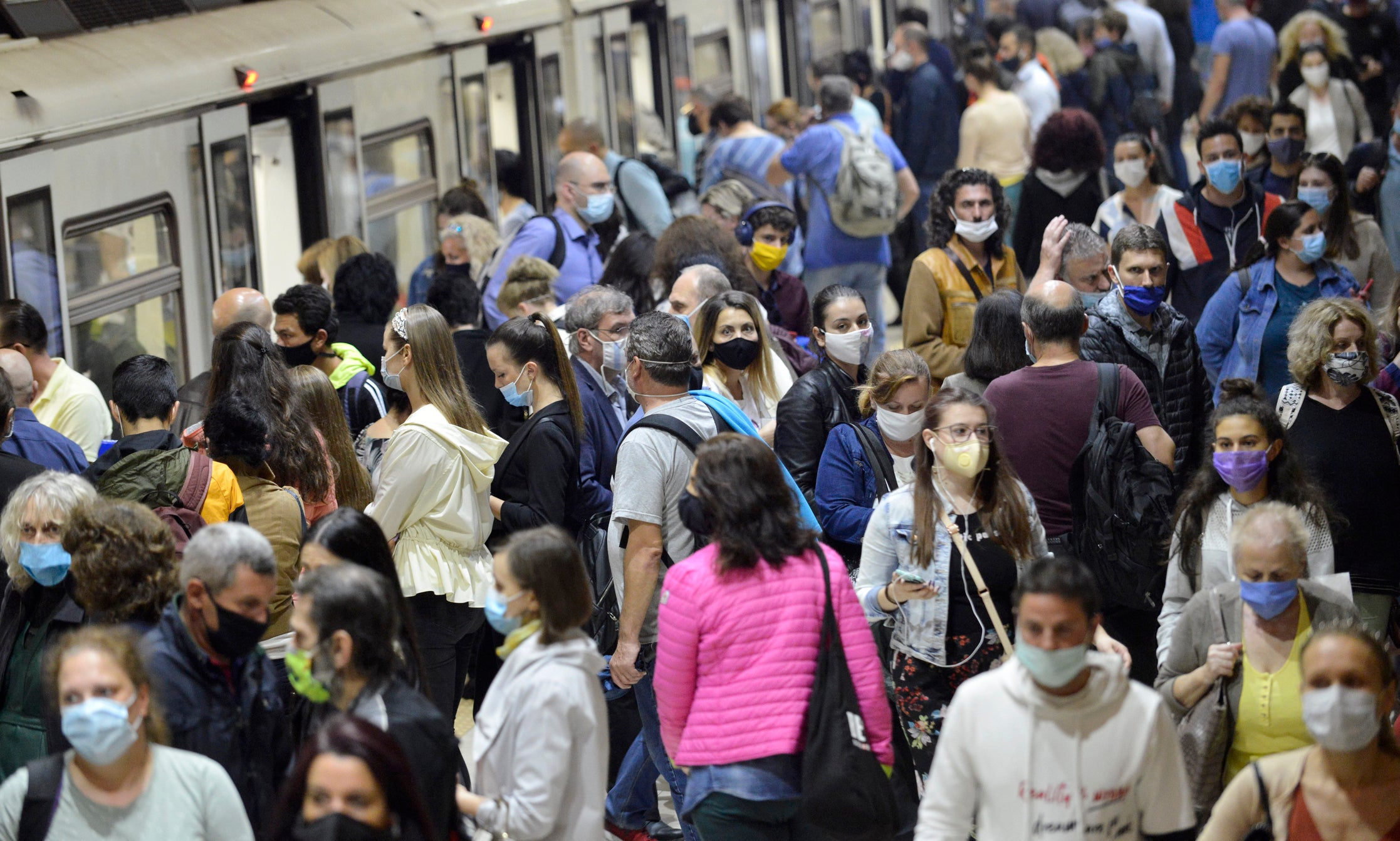Covid deaths eight times higher than those from flu or pneumonia
Professor Sir David Spiegelhalter warns second wave deaths could hit 20,000 by Christmas

Your support helps us to tell the story
From reproductive rights to climate change to Big Tech, The Independent is on the ground when the story is developing. Whether it's investigating the financials of Elon Musk's pro-Trump PAC or producing our latest documentary, 'The A Word', which shines a light on the American women fighting for reproductive rights, we know how important it is to parse out the facts from the messaging.
At such a critical moment in US history, we need reporters on the ground. Your donation allows us to keep sending journalists to speak to both sides of the story.
The Independent is trusted by Americans across the entire political spectrum. And unlike many other quality news outlets, we choose not to lock Americans out of our reporting and analysis with paywalls. We believe quality journalism should be available to everyone, paid for by those who can afford it.
Your support makes all the difference.Coronavirus is causing more than eight times the number of deaths from flu or pneumonia, according to the latest data from the Office for National Statistics.
In the week to 20 November the ONS said there were 2,697 deaths where Covid-19 was listed on the death certificate and 2,361 deaths where the virus was considered the main cause of death.
This compares to just 280 deaths with flu or pneumonia listed as the cause of death in the same week. There were 2,605 deaths which involved flu of pneumonia.
Across England and Wales, there were 20 per cent more deaths in the seven days to 20 November than the five-year average, with a total of 12,535 deaths reported.
Coronavirus deaths made up 21.5 per cent of all deaths in England and Wales, up 231 on the previous week.
The ONS said in England, all regions had a higher number of deaths in the week to 20 November than their five-year average for the second week in a row.
The number of Covid-19 deaths increased in all English regions in the latest week’s data except for the east of England.
Professor Sir David Spiegelhalter, chair of the Winton Centre for Risk and Evidence Communication at the University of Cambridge, said the number of deaths was “substantially larger than the peak for this week over the last 10 years, which was 10,882 in 2019. This is far greater than could be explained by an ageing population”.
He added: “2,697 deaths had Covid on the death certificate, and it is important to note that these are not just deaths ‘with’ Covid. Eighty-eight per cent of the Covid deaths, that is 2,361 people, were deaths ‘from’ Covid as the main underlying cause, only 12 per cent were ‘with’ Covid as a secondary cause.
“In contrast, there were only 280 death with flu or pneumonia as the main cause of death, so Covid is currently causing more than eight times the number of deaths than flu or pneumonia.
“It is encouraging that deaths that were not caused by Covid were slightly below the five-year average. We might expect some deaths that would normally occur now to have been brought forward by the first wave, but this still suggests that the collateral damage of the measures against the pandemic have not yet had an impact on overall mortality.”
Comparing the totals since 5 September to 20 November, Sir David said there had been approximately 16,000 Covid-related deaths in the second wave.
He said: “Sadly, the prediction that the second wave would involve tens of thousands of Covid deaths looks like it will be fulfilled, and we can expect this second-wave total to rise to over 20,000 by Christmas.”
He also warned the numbers of deaths in private homes was up 1,000 compared to normal levels, a 40 per cent increase.
“This seems to be a long-term change in the way people are dying in this country, and deserves close attention.”
The Nuffield Trust health think tank warned the rising death toll underlined the need for continuing restrictions to prevent further spread of the virus.
Sarah Scobie, the deputy director of research , said: “Hospitals will be bearing the brunt of this pressure, with 35.5 per cent of deaths in hospital Covid-related. Yet for some time now, we have seen the numbers of people dying at home well above the five-year average. More people dying at home will be having an as of yet untold impact on families and communities especially if they are not receiving the support they need while wider health services are stretched.”



Join our commenting forum
Join thought-provoking conversations, follow other Independent readers and see their replies
Comments